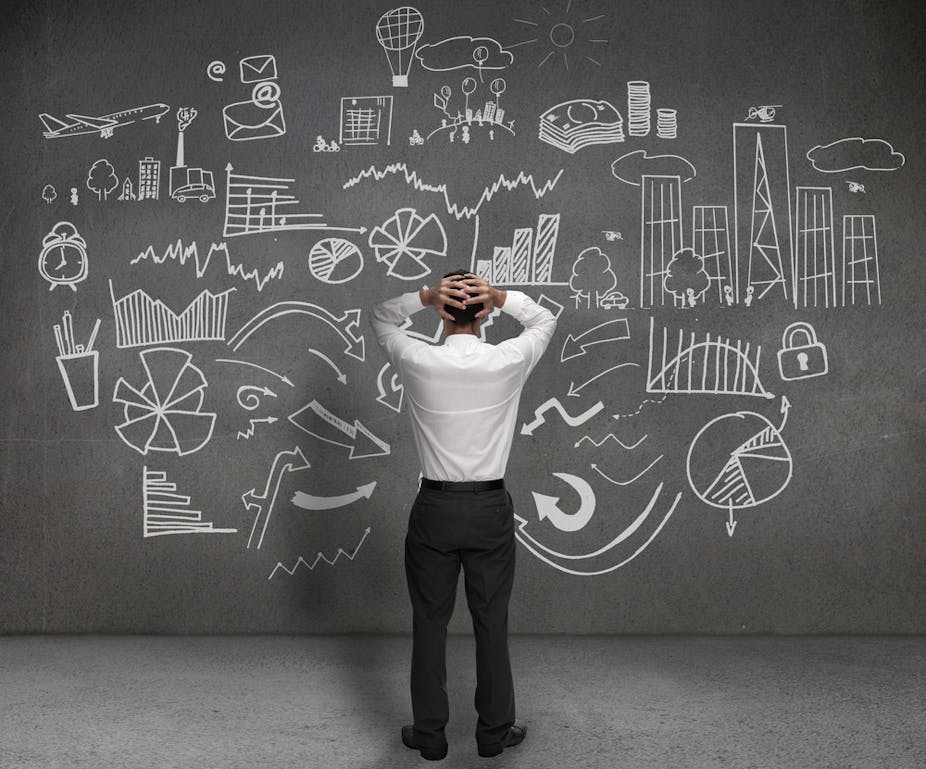Last week, California Governor Jerry Brown described Senator Ted Cruz as unfit to run for office because of his “direct falsification of the existing scientific data” on climate change. Cruz fired back that “global warming alarmists” like Brown “ridicule and insult anyone who actually looks at the real data.” Here we go again.
This is but the latest example of the toxicity of the public debate over climate change.
To detoxify the debate, we need to understand the social forces at work. On the one side, this is all a hoax, humans have no impact on the climate and nothing unusual is happening. On the other side, this is an imminent crisis, human activity explains all climate changes, and it will devastate life on Earth as we know it. Amidst this acrimonious din, scientists are trying to explain the complexity of the issue.
To reach some form of social consensus on this issue, we must recognize that the public debate over climate change in the United States today is not about carbon dioxide and greenhouse gas models; it is about opposing cultural values and worldviews through which that science is viewed.
The opposing sides in this rhetorical war have less to do with the scientific basis of the issue and more to do with the ways in which people receive, assess and act upon scientific information. To move forward, we have to disengage from fixed battle on one scientific front and seek approaches that engage people who are undecided about climate change on multiple social and cultural fronts.
Jury trial
To begin, we have to stop focusing a disproportionate amount of attention on the extreme poles of the debate, those who are distorting the science and engaging in a contest in which they are simply trying to “win.”
Attention must focus less on the small minority of active deniers and more on the vulnerability of the majority to their influence.
In the words of Tony Leiserowitz from Yale University,
“the proper model for thinking about the climate debate is not a boxing match, but a jury trial. We can never convince the die-hard skeptics, just like a prosecutor will never convince the defense lawyer, and doesn’t try. Rather, we should focus on convincing the silent jury of the mass public.”
Two tactics are necessary for reaching the undecided middle.
First, we must acknowledge that climate change is a complex issue that goes far beyond the scientific and includes many social and political concerns. For some people the phrase “climate change” evokes ideas of environmentalists pushing a radical socialist agenda, distrust of scientists and the scientific process, more and bigger government tampering with the market, and even a challenge to a belief in God.
Others hear completely different connotations: the natural outcome of a consumerist market system run rampant, belief that scientific knowledge should guide decision making, a much-needed call for regulation to curb market excesses, and even the potential for a breakdown of civilization if we fail to act.

These are the issues that make up the full context of the climate change debate. And research has shown that a strict focus on scientific data and models without addressing these deeper concerns will only lead those who resist the scientific explanation to dig their heels in even further.
This also explains why climate change has become so toxic, so caught up in what we call “the culture wars,” and why it seems to have joined sex, religion, and politics as an issue that people try not to discuss in polite conversation. Indeed, according to a survey by the Yale Project on Climate Change Communication, two-thirds of Americans rarely if ever discuss global warming with family or friends.
Climate change is many things
This leads to the second tactic for climate engagement: We must also recognize that people have multiple motivations for being concerned over climate change, and most are not scientific.
For example, Pope Francis speaks about climate change as an issue of faith and social equity. The world’s poor will be hit first and hardest even though they did little to contribute to the problem.

The CNA Military Advisory Board, a group of eleven retired three-star and four-star admirals and generals, sees it as an issue of national security, a “catalyst for conflict” that will destabilize vulnerable regions of the world and require military deployment.
Meanwhile, the Lancet, one of the leading medical journals in the world, considers climate change a health issue, a risk to vulnerable populations around the globe.
New York Times columnist Thomas Friedman warns that climate change is an issue of economic competitiveness. If the United States does not stimulate innovation in the next generation of renewable energy technologies, we will be forced to buy them from China and Germany.
Swiss Re, a leading global reinsurance company sees the issue as one of risk management for natural catastrophe, business interruption and directors & officers liabilities. Much in the same way that one buys home insurance for the low probability but high consequence risk of a house fire, one buys insurance to protect against the probability/consequence profile of climate change.
Management consulting firm McKinsey & Company sees the issue as a market shift, one that will require companies to develop climate change mitigation and adaptation strategies.
Each of these ways of framing the issue – and each of the representatives who frame it – will reach populations that the leading spokesman on climate change – scientists, environmentalists and Democratic politicians – cannot.
Only by broadening the scope of the debate to include this social and cultural complexity can we ever hope to achieve broad-scale social and political consensus. More scientific data can only take us so far; engaging the inherently human aspects of this debate will take us the rest of the way.
This essay was adapted from the recently released book, How Culture Shapes the Climate Change Debate.

